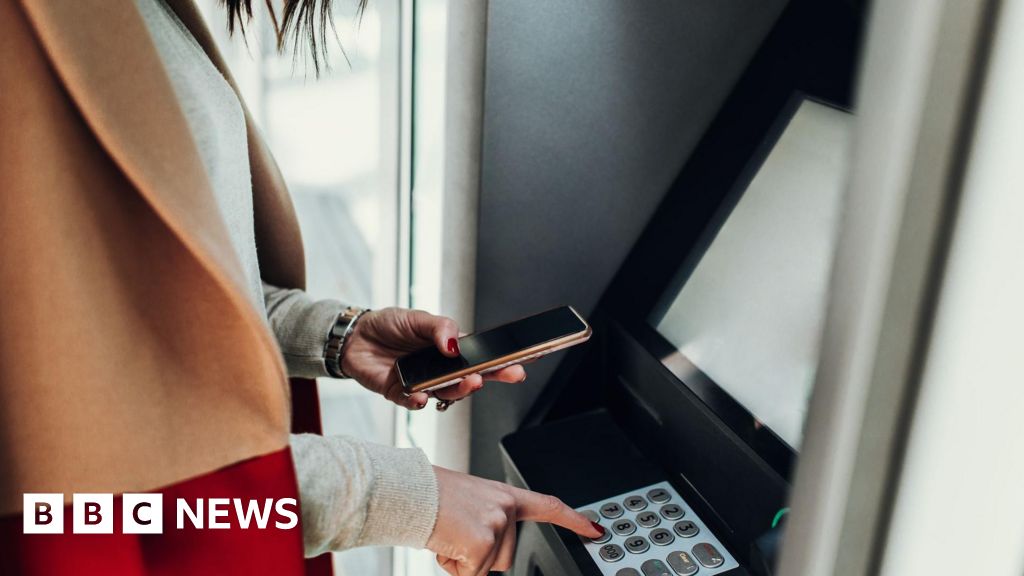
The share prices of leading UK banks have tumbled following calls for the government to introduce a new tax on banking profits.
Traders and investors have reacted to the Institute for Public Policy Research (IPPR) saying a windfall tax could raise up to £8bn a year for the government.
The think tank said the policy would compensate taxpayers for losses on the Bank of England’s cash printing drive.
While the Treasury has not commented on any policy, concerns led to NatWest, Lloyds and Barclays being the biggest fallers on the main index of the London Stock Exchange early on Friday.
NatWest and Lloyds share prices were down by more than 4%, and Barclays had dropped by more than 3% in early trading.
Charlie Nunn, the chief executive of Lloyds bank, has previously spoken out against any potential tax rises for banks in the Budget.
He said efforts to boost the UK economy and foster a strong financial services sector “wouldn’t be consistent with tax rises”.
The Treasury has been contacted for comment.
The IPPR, a left-leaning think tank, said a levy on the profits of banks was needed as the Bank of England’s quantitative easing (QE) drive was costing taxpayers £22bn a year.
The Bank of England buys bonds – essentially long term IOUs – from the UK government and corporations to increase bond prices and reduce longer term interest rates.
The Bank is selling off some of these bonds, and the IPPR said it is now making huge losses from both selling the government bonds below their purchase value and through interest rate losses.
The IPPR described those interest rate losses as “a government subsidy to commercial banks”, and highlighted commercial bank profits compared to before the pandemic were up by $22bn.
The tax suggestion comes as Chancellor Rachel Reeves faces the difficult task of maintaining her fiscal rules while finding room for spending promises in the upcoming autumn Budget.
Carsten Jung, associate director for economic policy at IPPR and former Bank of England economist, said the Bank and Treasury had “bungled the implementation of quantitative easing”.
“Public money is flowing straight into commercial banks’ coffers because of a flawed policy design,” he said.
“While families struggle with rising costs, the government is effectively writing multi-billion-pound cheques to bank shareholders.”
Speaking on BBC’s Today programme, Mr Jung said the £22bn taxpayer loss was roughly equivalent to “the entire budget of the Home Office every year”.
“So we’re suggesting to fix this leak of taxpayer money, and the first step would be a targeted levy on commercial banks that claws back some of these losses,” he said.
A tax targeting the windfall profits linked to QE would still leave the banks with “substantially higher profits”, the IPPR report said, while saving the government up to £8bn a year over the term of parliament.
But financial services body UK Finance said that a further tax on banks would make Britain less internationally competitive.
“Banks based here already pay both a corporation tax surcharge and a bank levy,” the trade association said.
The association said a new tax on banking would also “run counter to the government’s aim of supporting the financial services sector”.
Russ Mould, AJ Bell investment director, said the UK stock market had soured following the suggestion, with investors wondering “if the era of bumper profits, dividends and buybacks is now under threat”.
“The timing of the tax debate, fuelled by a report from think-tank IPPR, is unfortunate given it coincides with a new poll from Lloyds suggesting a rise in business confidence, despite cost pressures,” he said.
The Chancellor has worked hard since Labour won power to woo the City. In her Mansion House speech in November last year, Reeves said that banking regulation after the 2008 financial crisis had “gone too far”.
But she faces difficult fiscal decisions in the run-up to her budget, after the government watered down its planned welfare savings and largely reversed winter fuel allowance cuts – decisions which narrowed her budget headroom.






